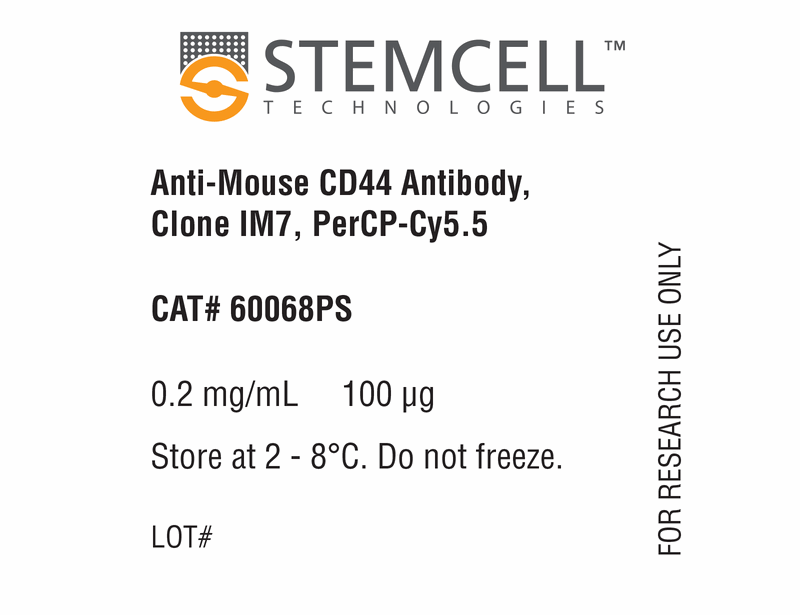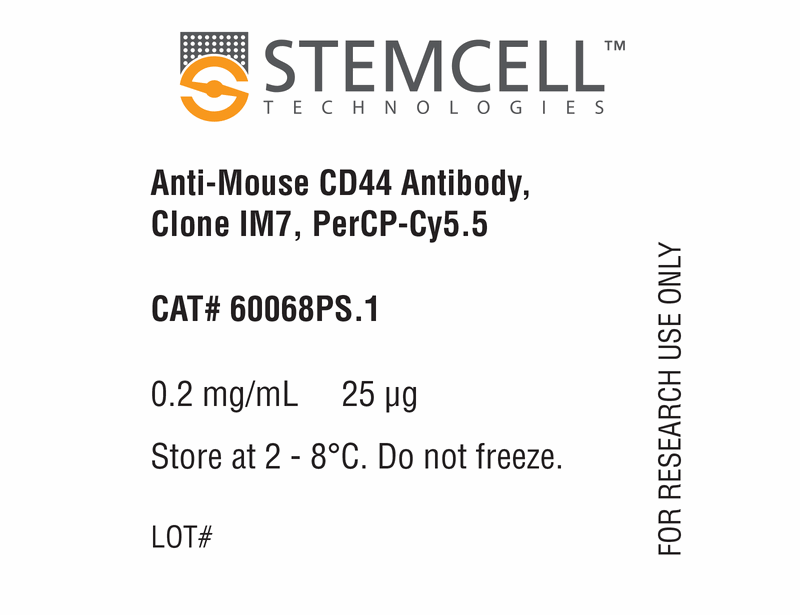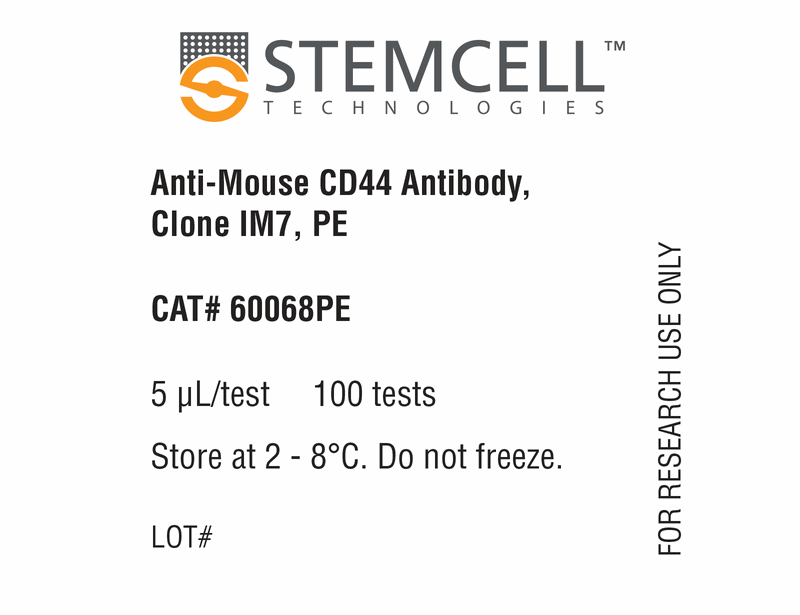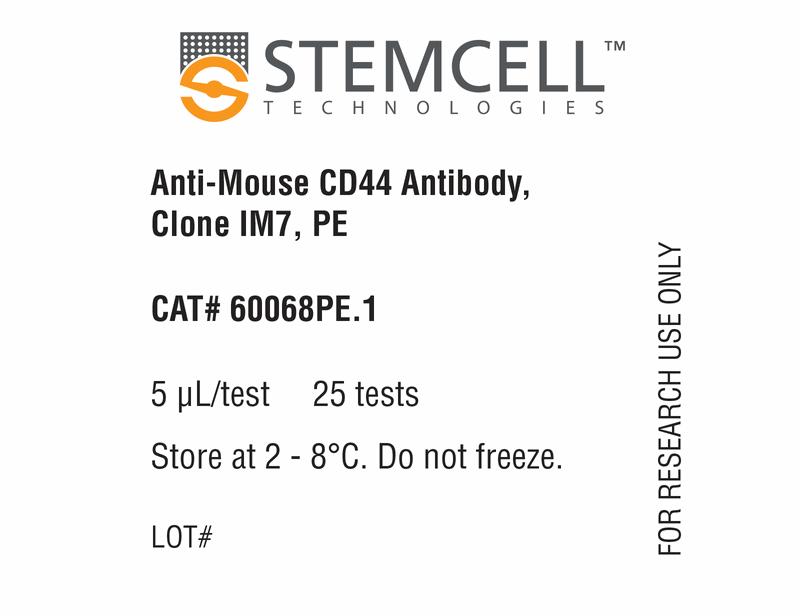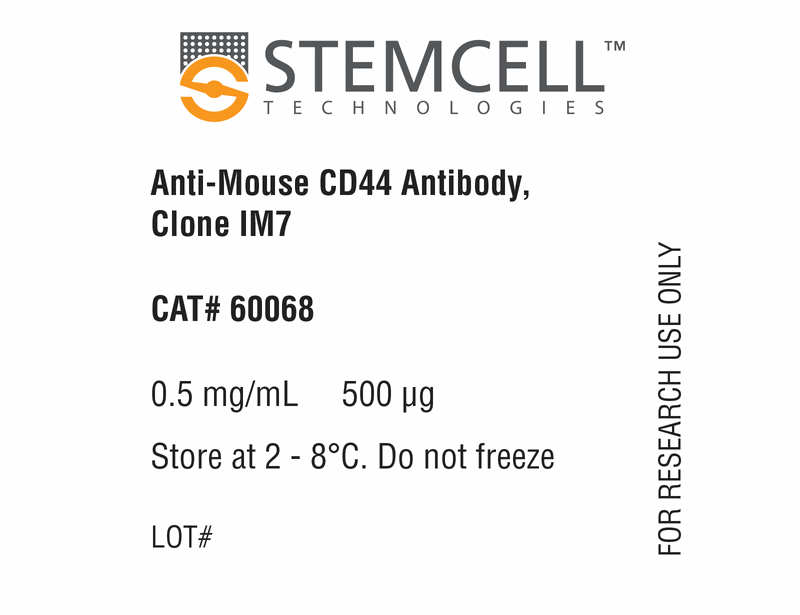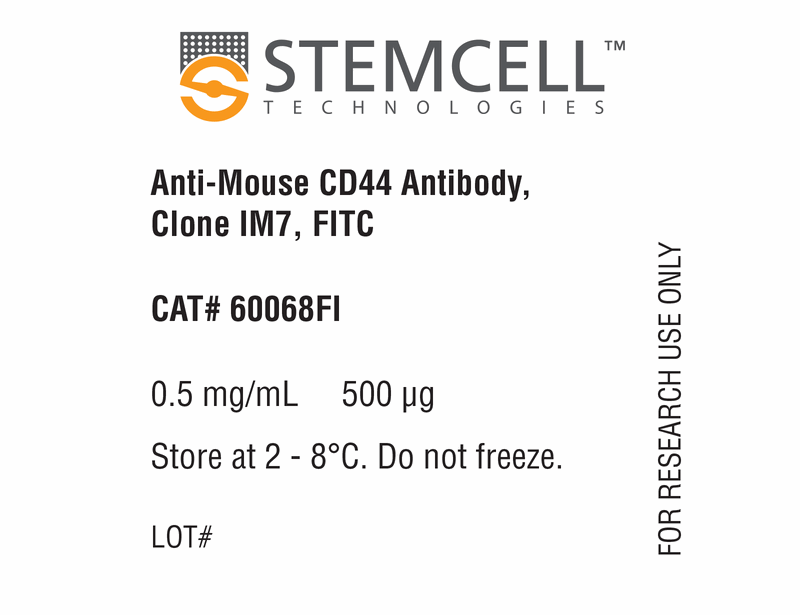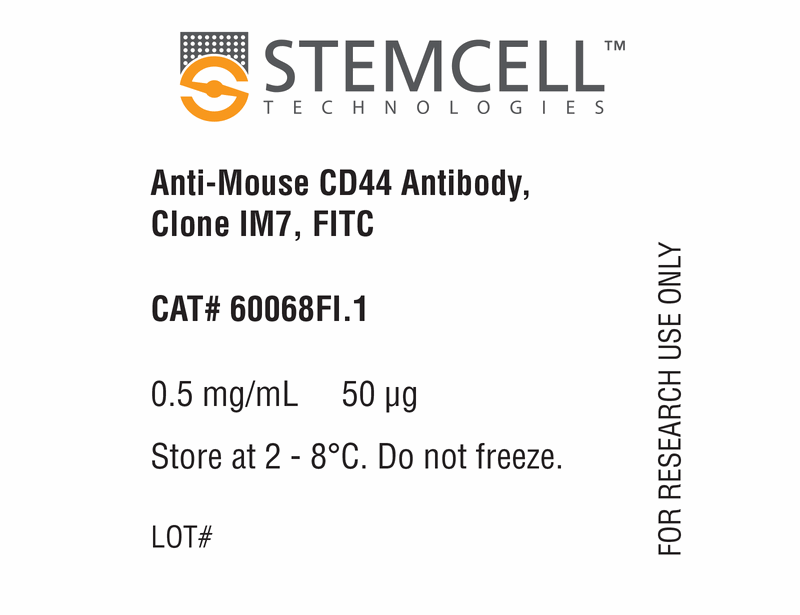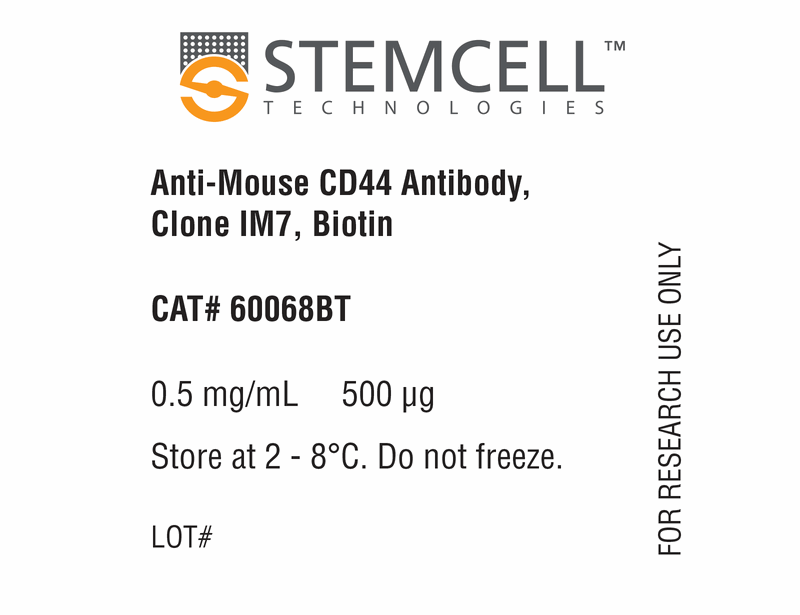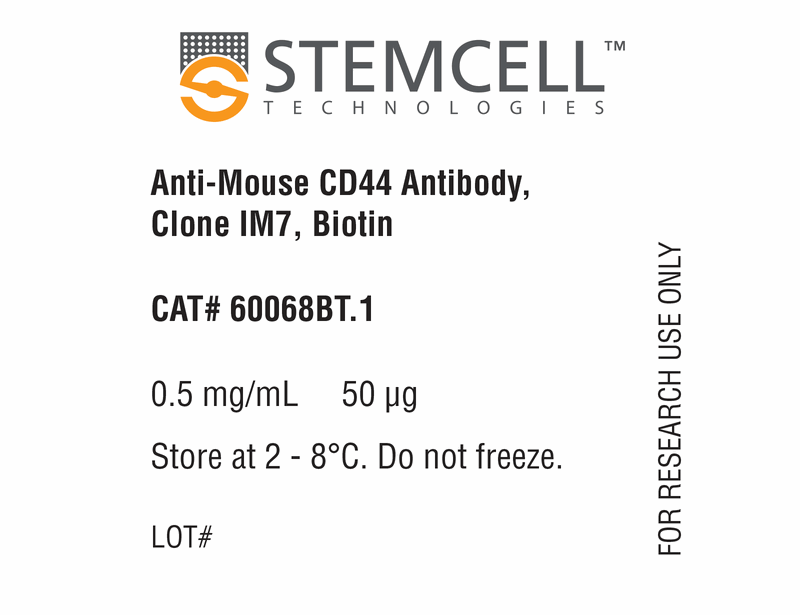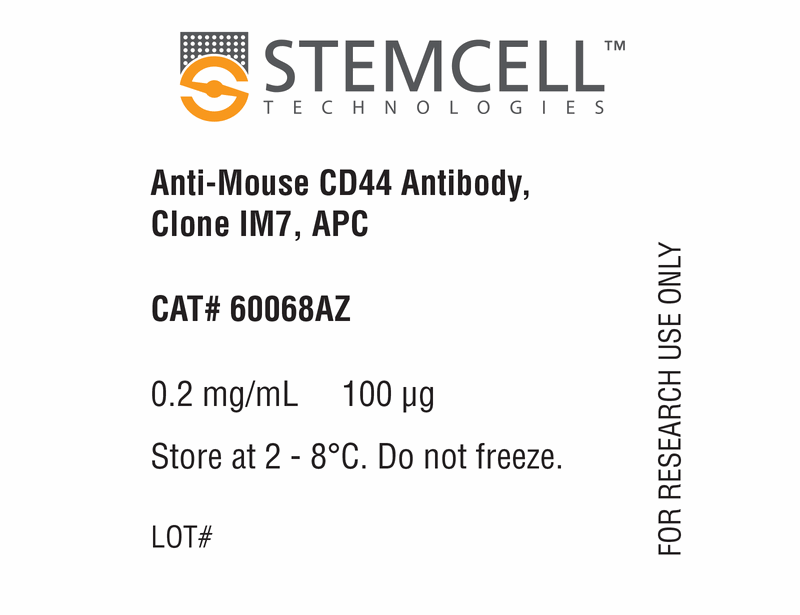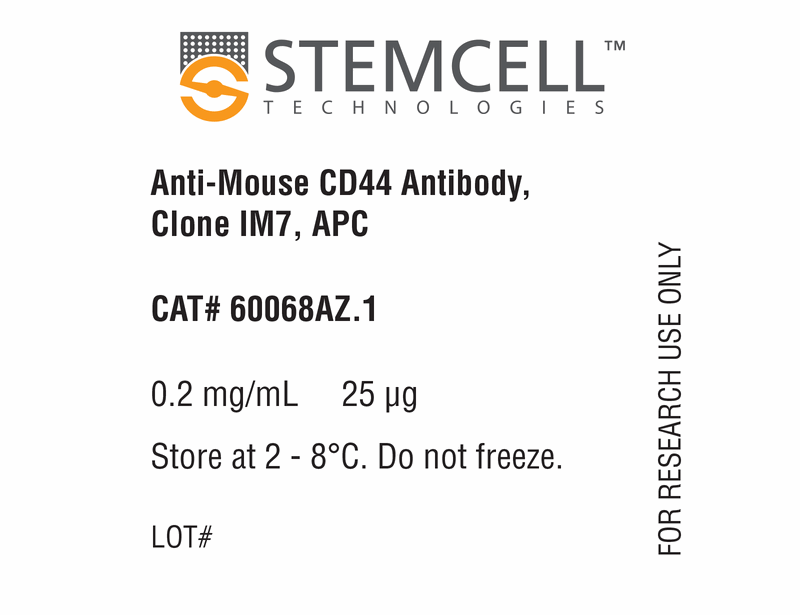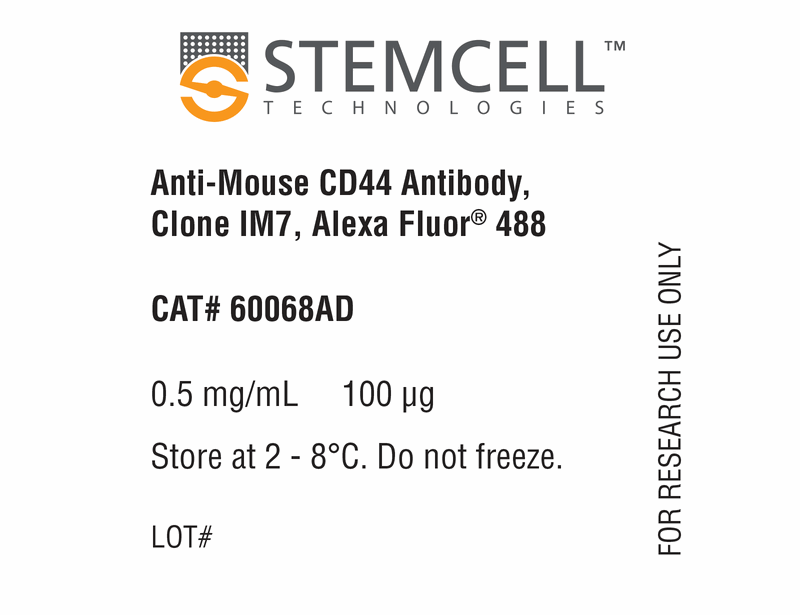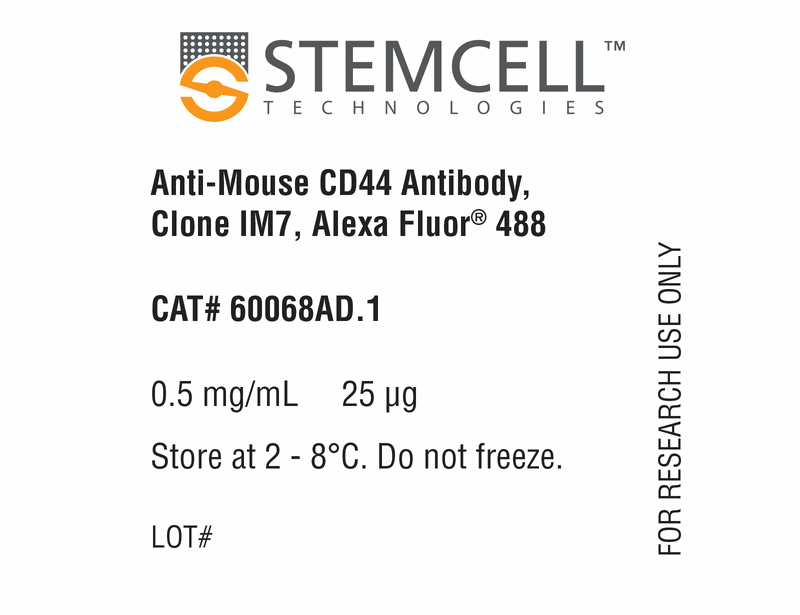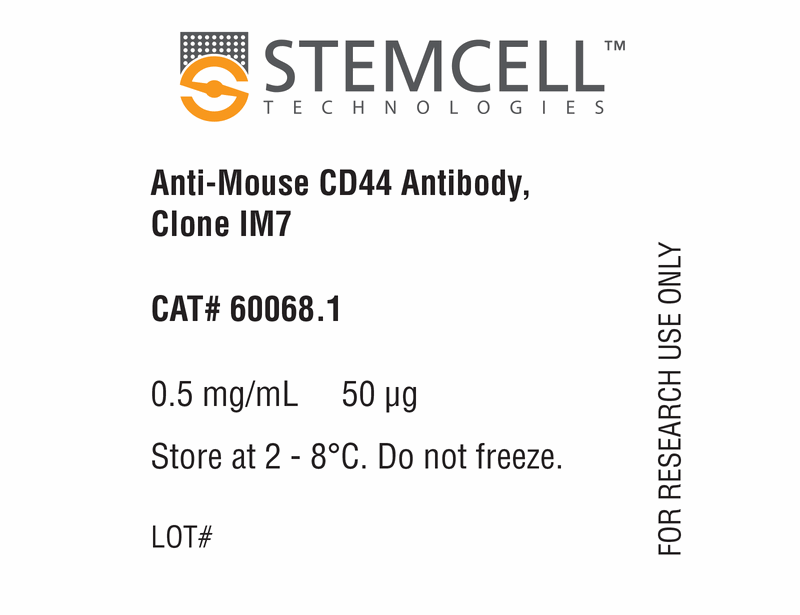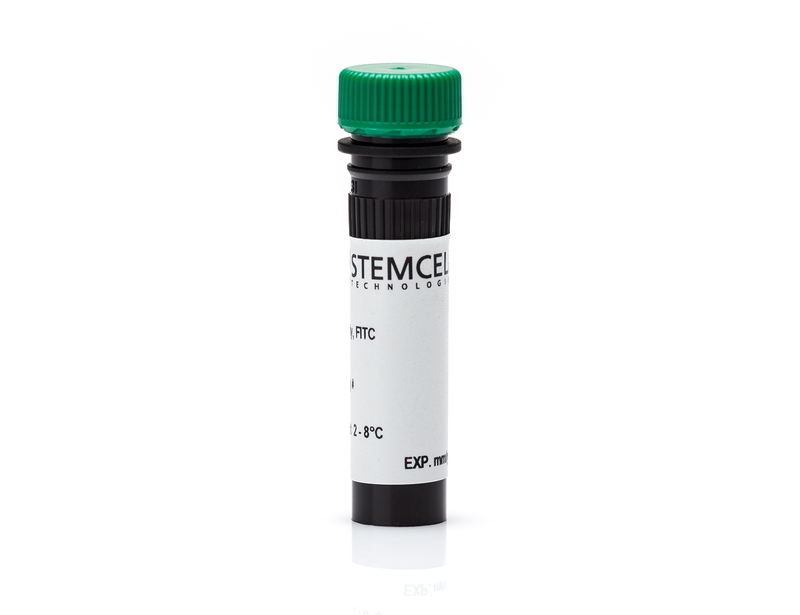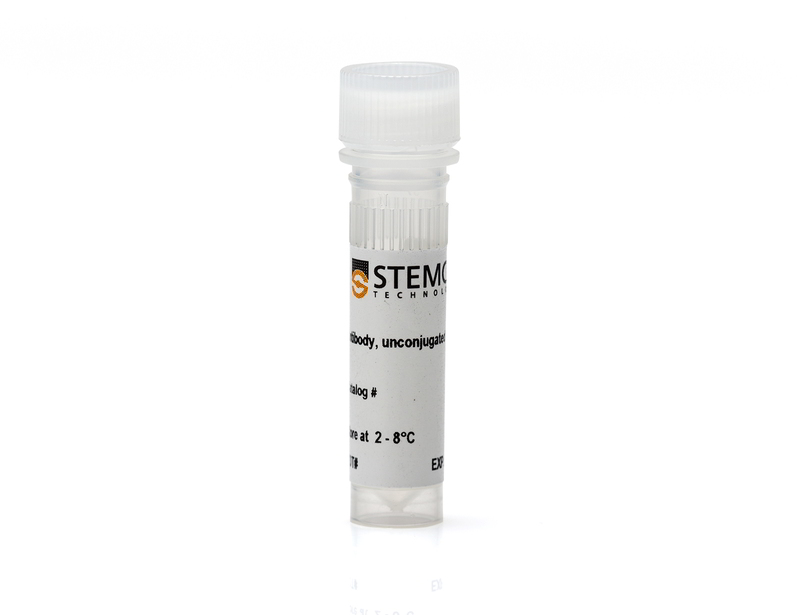Anti-Mouse CD44 Antibody, Clone IM7
This antibody clone has been verified for purity assessments of cells isolated with EasySep™ kits, including EasySep™ Mouse CD4+ T Cell Isolation Kit (Catalog #19852), EasySep™ Mouse CD4+CD62L+ T Cell Isolation Kit (Catalog #18765), and EasySep™ Human Naïve CD4+ T Cell Isolation Kit (Catalog #19555).
Data
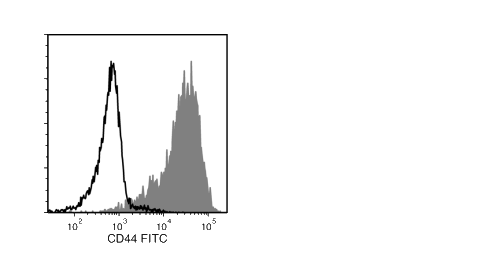
Figure 1. Data for Unconjugated
Flow cytometry analysis of human peripheral blood mononuclear cells (PBMCs; gated on lymphocytes) labeled with Anti-Mouse CD44 Antibody, Clone IM7, followed by Goat Anti-Mouse IgG (H+L) Antibody, Polyclonal, FITC (Catalog #60138FI) (filled histogram), or a rat IgG2b, kappa isotype control antibody, followed by Goat Anti-Mouse IgG (H+L) Antibody, Polyclonal, FITC (solid line histogram).
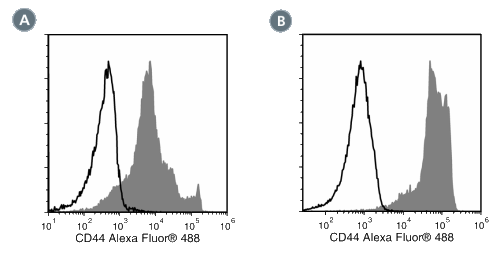
Figure 2. Data for Alexa Fluor® 488-Conjugated
(A) Flow cytometry analysis of C57BL/6 mouse splenocytes labeled with Anti-Mouse CD44 Antibody, Clone IM7, Alexa Fluor® 488 (filled histogram) or a rat IgG2b, kappa Alexa Fluor® 488 isotype control antibody (open histogram).
(B) Flow cytometry analysis of human peripheral blood mononuclear cells (PBMCs) labeled with Anti-Mouse CD44 Antibody, Clone IM7, Alexa Fluor® 488 (filled histogram) or a rat IgG2b, kappa Alexa Fluor® 488 isotype control antibody (open histogram).
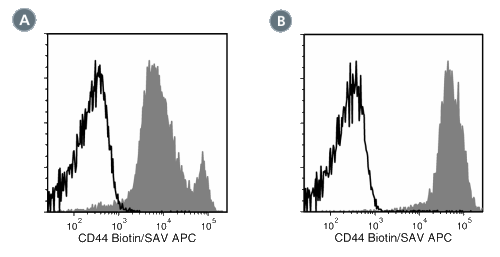
Figure 3. Data for Biotin-Conjugated
(A) Flow cytometry analysis of C57BL/6 mouse splenocytes labeled with Anti-Mouse CD44 Antibody, Clone IM7, Biotin followed by streptavidin (SAV) APC (filled histogram) or a rat IgG2b, kappa Biotin isotype control antibody followed by SAV APC (solid line histogram).
(B) Flow cytometry analysis of human peripheral blood mononuclear cells (PBMCs) labeled with Anti-Mouse CD44 Antibody, Clone IM7, Biotin followed by streptavidin (SAV) APC (filled histogram) or a rat IgG2b, kappa Biotin isotype control antibodyfollowed by SAV APC (open histogram).
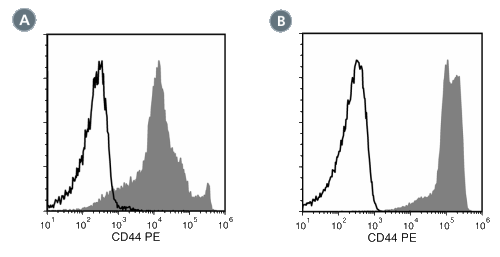
Figure 4. Data for PE-Conjugated
(A) Flow cytometry analysis of C57BL/6 mouse splenocytes labeled with Anti-Mouse CD44 Antibody, Clone IM7, PE (filled histogram) or a rat IgG2b, kappa PE isotype control antibody (open histogram).
(B) Flow cytometry analysis of human peripheral blood mononuclear cells (PBMCs) labeled with Anti-Mouse CD44 Antibody, Clone IM7, PE (filled histogram) or a rat IgG2b, kappa PE isotype control antibody (open histogram).
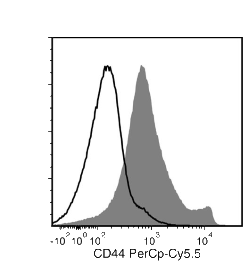
Figure 5. Data for PerCP-Cy55-Conjugated
Flow cytometry analysis of C57BL/6 mouse splenocytes labeled with Anti-Mouse CD44 Antibody, Clone IM7, PerCP-Cy5.5 (filled histogram) or a rat IgG2b, kappa isotype control antibody, PerCP-Cy5.5 (solid line histogram).
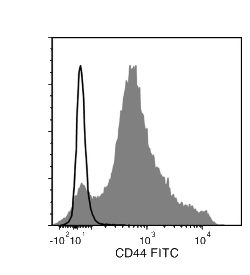
Figure 6. Data for FITC-Conjugated
Flow cytometry analysis of C57BL/6 mouse splenocytes labeled with Anti-Mouse CD44 Antibody, Clone IM7, FITC (filled histogram) or Rat IgG2b, kappa Isotype Control Antibody, Clone RTK4530, FITC (Catalog #60077FI) (solid line histogram).
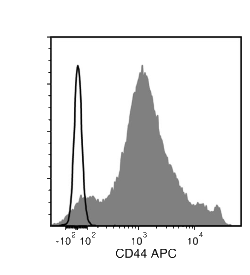
Figure 7. Data for APC-Conjugated
Flow cytometry analysis of C57BL/6 mouse splenocytes labeled with Anti-Mouse CD44 Antibody, Clone IM7, APC (filled histogram) or Rat IgG2b, kappa Isotype Control Antibody, Clone RTK4530, APC (Catalog #60077AZ) (solid line histogram).

